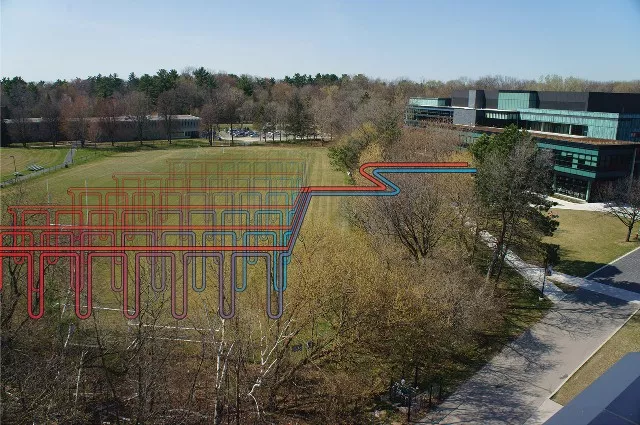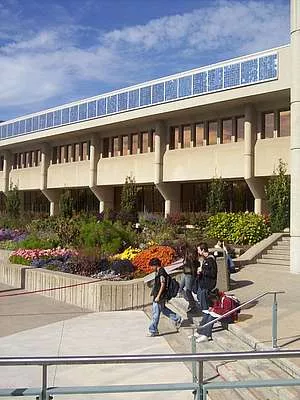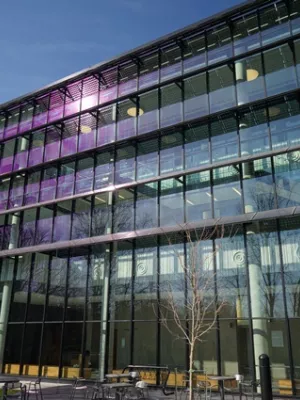Since 2002 UTM has been in a state of constant growth to accommodate the addition of more faculty, staff, and students, meaning energy demand has also increased. However, UTM has implemented many projects to reduce energy use and increase renewable energy on campus, including upgrading older buildings to become more efficient and installing solar panels.
The 2024 Conservation Demand Management (CDM) update fulfills the requirements of Broader Public Sector reporting O. Reg 25/23, providing a summary of 2022 and 2023 energy consumption and outlining the progress made reaching the university’s energy and emissions reduction targets. It builds on the 2019-2024 Conservation and Demand Management Plan, listed below.
It also lays out the roadmap for reaching the ambitions targets set in the Climate Positive Plan – reducing emissions 39 percent by 2030 and achieving climate positive by 2050.
Download UTM's Energy Conservation and Demand Management Plan (2019)
Download UTM's Energy Conservation and Demand Management Plan (2024)
Renewable Energy on Campus
The UTM campus features both solar and geothermal technologies.
- Geothermal in the Instructional Centre
Geothermal systems — also known as earth-energy, ground-source heat pumps and geo-exchange systems — have been in existence for almost 50 years.

The geothermal system provides heating to a building in the winter and cooling in the summer. In the summer, heat is taken out of the building and stored in the ground. In the winter, the stored heat is taken out of the ground and returned to the building.
A geothermal system is used to heat and cool the Instructional Centre. The well field — where the boreholes were drilled — is located on the football field adjacent to the building. There are a total of 117 boreholes, which are each 168 meters (about 550 feet) deep. Since there is no need for a separate boiler and chiller to heat and cool the building, this system saves a significant amount of energy. The only energy used is a small amount of electricity to run the pumps. The Instructional Centre is certified LEED silver.
For more information on ground-source heat pumps, see the Ontario Geothermal Association.
- Solar Panels on the William G. Davis Building and Instructional Centre
| Building Name and Details | Building Address | UofT Building Code | Building Image |
|---|---|---|---|
William G. Davis Building | 1867 Inner Circle | DV | 
|
Instructional Centre | 1599 Outer Circle | IB | 
|
